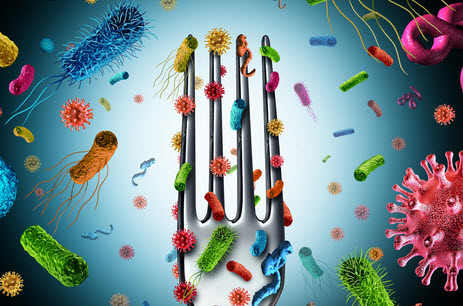According to the Centers for Disease Control and Prevention (CDC), close to 50 million Americans get sick from food contamination and poisoning every year, of which thousands die. The most common incidents stem from bacteria such as Campylobacter, Clostridium, E.coli, Listeria, Salmonella, and Shigella, and can result in flu symptoms, nausea, organ failure, vomiting, and severe weakness.
While a number of injuries can result when food is improperly refrigerated, undercooked, or “clean” food comes into contact with already-contaminated food – as well as when food handlers do not wash their hands thoroughly – one of the more dangerous is Hantavirus pulmonary syndrome, which is a serious disease specifically transmitted by infected rodents through droppings, saliva, and/or urine.
Unfortunately, Florida has had its fair share of inspectors finding contaminated food: In September, the Florida Department of Agriculture reportedly found rodent droppings on some of the food at The Corner Deli in Pembroke Pines and issued a “stop use” on all food processing areas there. The inspector also ordered all areas to be cleaned and sanitized and the owner of the facility to implement a pest control panel.
This is not a unique circumstance here in the sunshine state: a number of dining locations were also recently ordered shut due to “dirty dining” issues. Below, we discuss some of the basic standards these facilities are supposed to abide by, and if they fail to do so, and customers become sick as a result, whether a personal injury claim could be brought.
Food Poisoning Laws & Claims
Food management and contamination prevention efforts are regulated at both the federal and state levels. The law requires that facilities, retailers, restaurants, and other food enterprises exercise reasonable care when it comes to dealing with ensuring that food is safe for consumption. In addition, the state of Florida also requires the following when it comes to food establishments:
- A certified food protection manager;
- An employee health policy;
- The absence of rodent excreta on food, inside cabinets, under equipment, along the walls, underneath the sinks, underneath prep tables, etc.; and
- Meat and products containing meat (in addition, the person in charge must be able to indicate the time prepared initially) be kept at a particular internal temperature range; amongst other requirements.
When someone becomes sick because a food establishment has been negligent and/or failed to comply with basic requirements like these, they can be held liable for resulting injuries. Costs covered for the injured victim include any medical expenses as a result of the sickness, pain and suffering, lost wages from missing work, and associated damages.
Florida Personal Injury & Consumer Protection Attorneys
If you or a loved one has been made sick by contaminated food at a Florida food establishment, contact one of our experienced attorneys at Lavalle, Brown & Ronan today to find out how we can help.
Resources:
southernnevadahealthdistrict.org/health-topics/hantavirus.php
local10.com/news/dirty-dining/inspector-finds-rodent-waste-on-bacon-at-south-florida-deli



